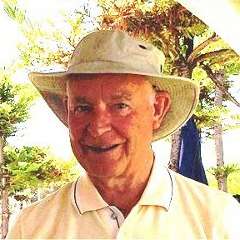Richard Meale’s powerful opera Voss has returned to the Adelaide’s Festival Theatre 36 years after its world premiere, another in the State Opera’s “Lost Operas of Oz” series. David Malouf's libretto crystallises Patrick White's difficult-to-read Nobel prize-winning novel. It’s a story that touches the Australian soul, that speaks of coming to terms with our land, embracing it, and letting it speak to us. It seemed fitting that a Kaurna elder commenced the evening by performing the Welcome To Country on a didgeridoo.
Voss is set in the newly settled village of Sydney and the untamed desolate outback in the mid-19th century, as Europeans in Australia are coming to terms with their place in this new land. At its core is a relationship which develops between a German explorer, Voss, and a shy young lady, Laura Trevelyan, who meet in Sydney at a farewell party her uncle was hosting for the departing explorers. They forge a deep telepathic connection, spiritual rather than romantic. It endures over the hundreds of kilometres that separate them as Voss and his inept exploration party stumble their way into the wilderness, until their ultimate gruesome demise. On another level Alistair McKean’s programme notes explain that much of the action depicts the struggle over Voss’s soul that takes place in the shared space of his and Laura’s minds.
Meale’s exciting music, with a bit of bel canto, colonial keyboard quadrilles and German Lieder, was played with flair and confidence by the Adelaide Symphony Orchestra, seated in full view for this semi-staged performance and conducted by Richard Mills. Throughout the performance, details from Fred Williams' landscape paintings were projected onto a large rear screen, a visual addition to powerful aural images, emotions and feelings created by the absorbing music.
Baritone Samuel Dundas, in what is arguably his greatest role so far, sang a very convincing Voss. On stage for most of the opera he was first, in Act 1 at his patron’s Sydney home, perceived as a bit odd and an outsider. As Mrs Bonner, the patron’s wife, contralto Cherie Boogaart displayed a superior sneer and prophetic sadness, repeatedly proclaiming he was “lost, lost already”. A promising sense of gentleness and connectedness became evident between Voss and young Laura, sung fascinatingly by Emma Pearson, as they tenderly built the bond that endured, expressed more strongly though the lyrical emotion of the orchestra than in words. By Act 2, Voss had chosen his companions and was seeking Judd to be his guide. Mrs Judd, with strong “Strine” accent, a completely different second role for Boogaart, was equally convincing. Bass Pelham Andrews was at home as both Mr Bonner and excelling as Judd, the “ex-convict, escapee, survivor” who had a commanding presence and survived to finally inform Laura that Voss “left his mark on the country”.
Voss’ favourite expeditionary crew member was the young Harry Robarts, delightfully performed by tenor Nicholas Jones (who burst into State Opera as the intellectually challenged Fish Lamb in the world premiere of Cloudstreet). An ensemble of singers from State Opera Chorus, dressed in unobtrusive black, set the context for the opera at the start, then commented on events and attitudes as it progressed. Coached by chorus master Anthony Hunt they were always precise and insightful, finally referring to Laura as “the explorer’s woman, the scarecrow” – derogatory terms delivered to a joyful tune.
Cleverly, for most of the second act, there was a ‘Sydney’ group on one side of the stage and an ‘expedition’ group on the other. Sometimes they intermingled. Sometimes they sang together, or contrasted with the other. It was a practical device that bound the story together. It gave an opportunity for richer and contrasting music from the orchestra. At other times it allowed the audience to appreciate the communication and intimacy of Dundas and Pearson towards each other. At the moment of Voss’ death, Laura could be seen holding him in her arms, a strong expression of the enduring closeness they shared with each other.
The opera ended on messages of hope. A reporter, baritone Jeremy Tatchell, confidently proclaimed “A country with a future, but when does that future become the present?” And Laura’s final reflection “Voss... my love, you are there still in the country. Your legend will be written in the air, in the sand, in thorns, in stones… and what we do not know the air will tell us.” All very First Nation reality, although probably not originally intended as such.




